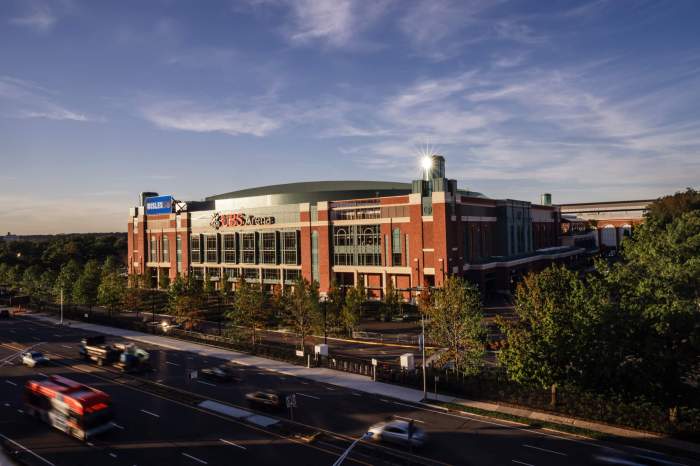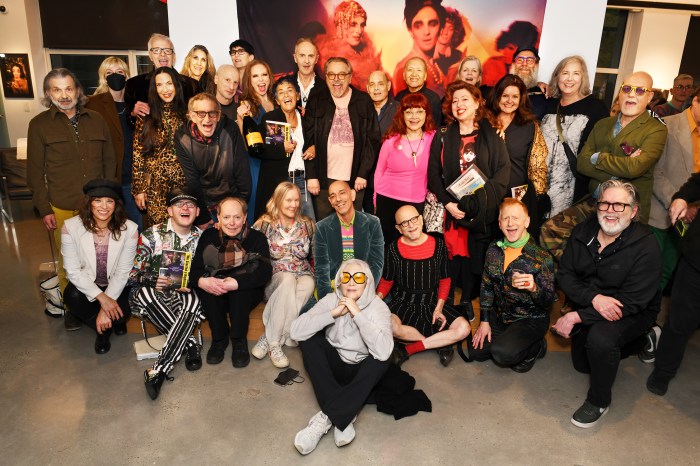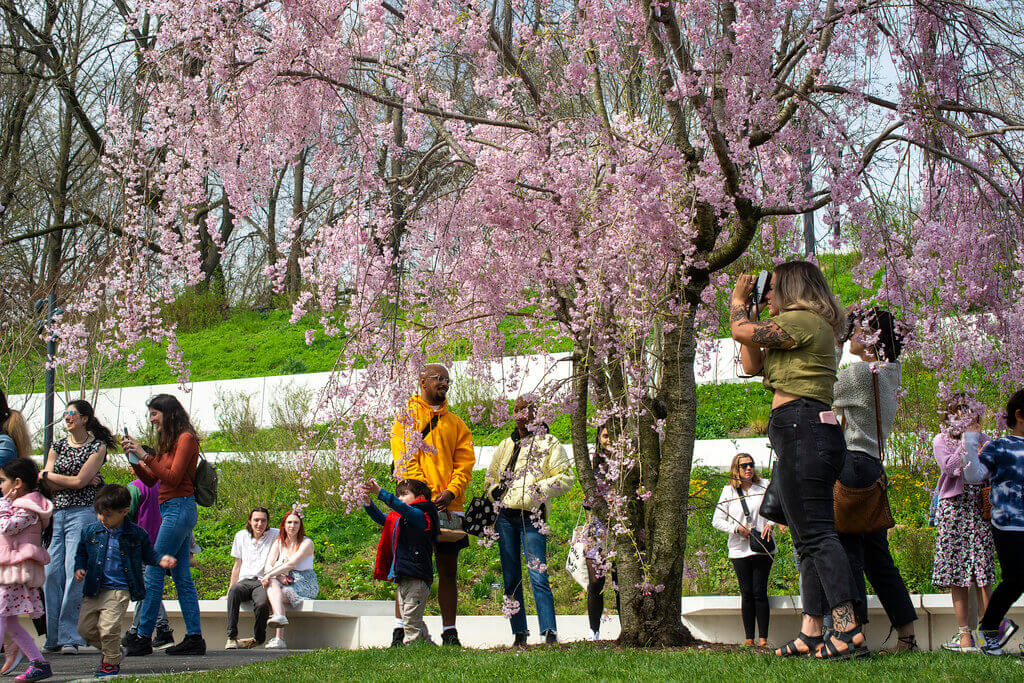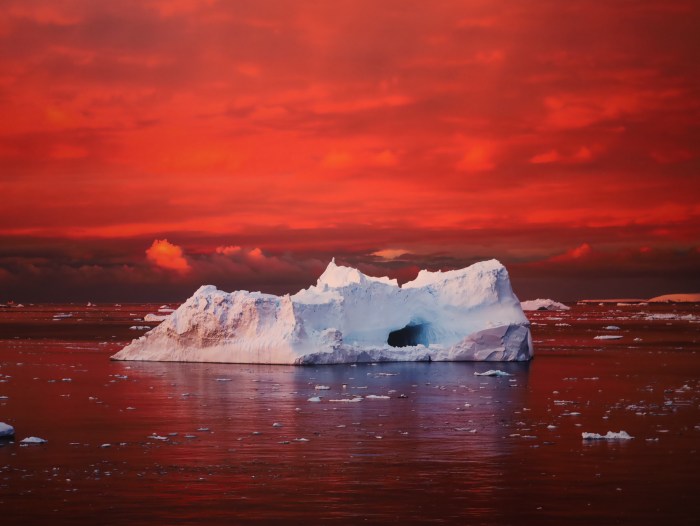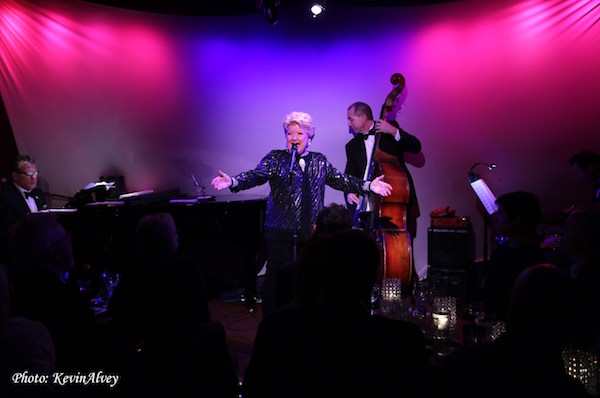
THE METROPOLITAN ROOM: FINAL CHELSEA DAYS | Cozy to put it mildly, the layout of Chelsea’s Metropolitan Room has always paled in comparison to the expansive roster of talent to grace that tiny stage over the course of any given month. Now, after an 11-year run, the little space that could — and did — provide a friendly and supportive home to drag performers (Hedda Lettuce!), old school Yiddish theater greats (Fyvush Finkel!), autobiographical raconteurs (Leslie Jordan!), and nightclub royalty (Marilyn Maye!) is pulling up stakes and staking its claim on a new Midtown space with enough square footage for a restaurant, piano bar, and two performance rooms. That new club won’t debut until early 2018. Until then, they’ll be presenting some of their longtime performers at a kindred spirit venue that knows a little something about eclecticism: The Triad on W. 72nd St. But the Metropolitan Room isn’t going quietly from its W. 22nd St. space.
Trading kicking and screaming for crooning and swinging, the Metropolitan Room bids adieu to Chelsea with a high-spirited marathon starring an embarrassment of riches culled from their long list of top-notch headliners. That event goes from 9pm on Sun., Sept. 24 through 9pm on Mon., Sept. 25. The final night, until we meet again, is Sat., Sept. 30, when David Maiocco and Chuck Sweeney rule the roost as, respectively, Liberace and Peggy Lee, in the appropriately titled “Lee Squared: An Evening with Liberace and Miss Peggy Lee.” Show at 9:30pm — and don’t lift any glassware on your way out, okay? Let’s remember what the Metropolitan Room taught us, and keep it classy.
The Metropolitan Room is located at 34 W. 22nd St. (btw. Fifth & Sixth Aves.). For reservations, call 212-206-0440 or visit metropolitanroom.com.
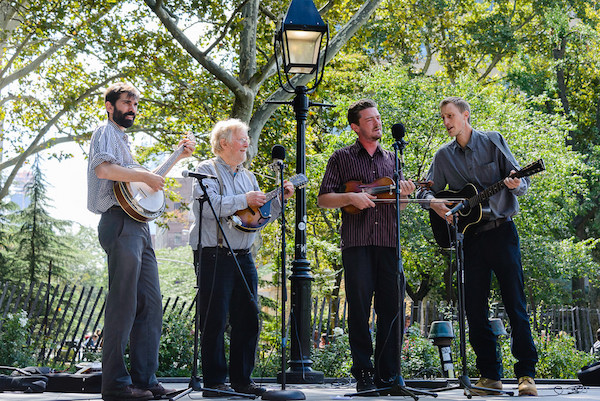
THE WASHINGTON SQUARE PARK FOLK FESTIVAL | Long a prime destination for poets, protesters, and people watchers, Washington Square Park can also claim a storied history (and a not-too-shabby present) as the place where musicians of all stripes gather for impromptu jams, intense debates, and pivotal moments where songs are written and bands are formed. Before the coffeehouses of Greenwich Village took it indoors and exported it globally, the city’s folk scene found a warm and welcoming incubator when the likes of 1940s-era Woody Guthrie and Pete Seeger would spend Sunday afternoons making music in the park (followed some years later by a young Bob Dylan). Mindful of that history and determined to keep the tradition alive, Greenwich Village native and music producer Eli Smith — along with a formidable crew of likeminded genre enthusiasts and local small business backers — will present the seventh annual edition of their Washington Square Park Folk Festival. The event draws heavily upon local talent.
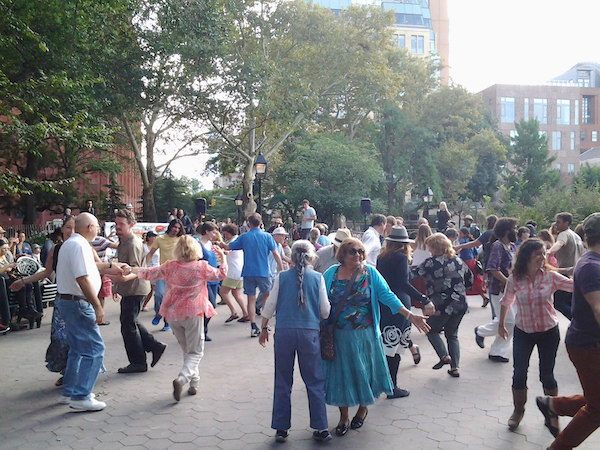
This year’s roster features blues guitar from Zeke Schein (1:45pm), traditional Turkish and Balkan music from Seyyah (2:30pm), and string band Bill and the Belles (3:15pm). Joined by legendary ’60s-era folk musician John Cohen, The Down Hill Strugglers (a trio that claims Smith as a member; Coen Brothers fans known them from the soundtrack to “Inside Llewyn Davis”) open the festival with a 1pm set, and the event closes with a 4pm community square dance called by Alex Kramer. If that afternoon in Washington Square Park gives you the folk bug, or makes it worse, mark your calendar for another Smith-produced event: The 10th Annual Brooklyn Folk Festival, April 6–8, 2018. Details at brooklynfolkfest.com.
The Washington Square Park Folk Festival is a free event, held from 1–5pm on Sun., Sept. 10 (stage located by the Garibaldi statue on the park’s East side). For more info, visit wspfolkfest.com.
UNLIKELY HISTORIANS: MATERIALS COLLECTED BY NYPD SURVEILLANCE TEAMS, 1960-1975 | Freedom of assembly doesn’t necessarily mean freedom from scrutiny — in fact it often guarantees it, especially when the cause you stand for poses a threat, real or imagined, to the powers that be. Decades before making headlines and earning ACLU ire for keeping tabs on the Muslim community and the Black Lives Matter movement, the NYPD was very busy tailing individuals and infiltrating organizations. In doing so, the trail of records left behind survived to become a fascinating, at times infuriating, time capsule of Big Brother’s unblinking eye. This exhibit is rich with photographs and objects from 15 years of surveillance, which saw NYPD scrutiny of organizations such as the Communist Party, Black Panthers, Nation of Islam, The American Renaissance Party, Women Strike for Peace, and Youth Against War and Fascism.
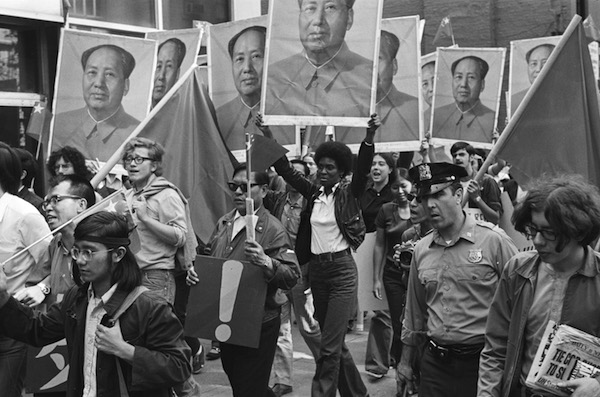
Among the documents are photos from a 1963 C.O.R.E. demonstration for fair housing, a 1972 National Renaissance Party gathering at the Rhodesian Embassy in support of that country’s segregationist government, and Muhammad Ali’s 1968 speech at Muhammad Mosque 7C (following revocation of the boxer’s license after he refused to enlist in the Army). Other items on display include film footage of demonstrations, a copy of a speech written by Martin Luther King Jr., pamphlets, buttons, and magazines. And what does all of this cost to see? It’s free — which seems only fair, given how taxpayer dollars financed all that surveillance in the first place.
Sept. 8–Feb. 28, 2018. At the New York City Municipal Archives (1st floor gallery, 31 Chambers St.; northwest corner of Centre & Chambers Sts.). Viewing hours: Mon.–Wed. & Fri., 9am–4:30pm; Thurs., 9am–7pm. Visit nyc.gov/records.
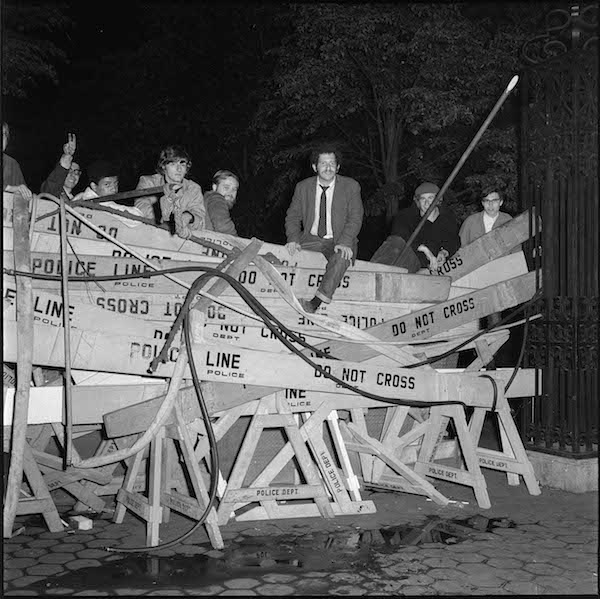
—BY SCOTT STIFFLER










